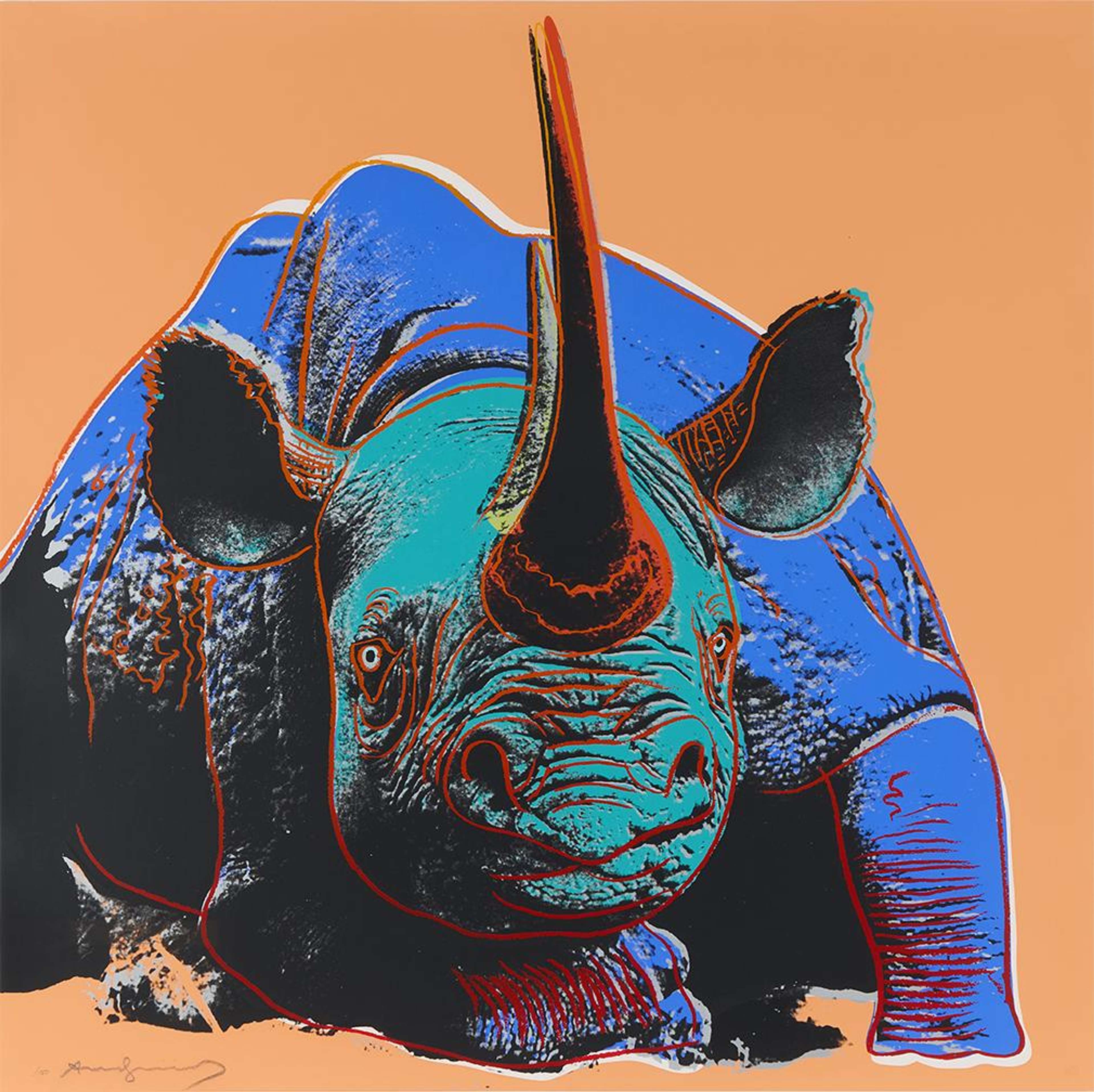
Black Rhinoceros (F. & S. II.301)

Black Rhinoceros (F. & S. II.301)
Signed Print
Andy Warhol
£90,000-£140,000
$180,000-$280,000 Value Indicator
$170,000-$260,000 Value Indicator
¥850,000-¥1,320,000 Value Indicator
€100,000-€160,000 Value Indicator
$930,000-$1,450,000 Value Indicator
¥18,690,000-¥29,070,000 Value Indicator
$120,000-$190,000 Value Indicator
There aren't enough data points on this work for a comprehensive result. Please speak to a specialist by making an enquiry.
96 x 96cm, Edition of 150, Screenprint
Auction Results

Track auction value trend
Meaning & Analysis
Black Rhinoceros (F. & S. II. 301) is a print from Andy Warhol’s Endangered Species series (1983) that was created to draw attention to the endangered species of the world. The series transforms every animal from the Endangered Species Act of 1973 into a Pop Art cultural icon through Warhol’s use of kaleidoscopic colour. This print shows a vivid image of a Black Rhinoceros that can be found in parts of East Africa, whose population size has dramatically fallen since the 20th century largely due to hunting.
Commissioned in 1983 by celebrated political activists and philanthropists Ronald and Frayda Felmen to produce the series, this work marks Warhol’s passion for environmentalism and the philanthropic power of his Pop Art screen prints. Referring to the series has his ‘animals in makeup’, Warhol produces larger than life images of these animals with excessively saturated hues and surreal colour contrasts.
Black Rhinoceros (F. & S. II. 301) shows a photographic image of the animal rendered in bright blue blocks of colour, set against a solid orange backdrop and contoured with bold, red crayon-like outlines. The resulting image is reminiscent of Warhol’s iconic portrayals of superstar celebrities like his Marilyn (1962) and Liz series (1964), thus immortalising the image of the endangered animal into a Pop Art icon.